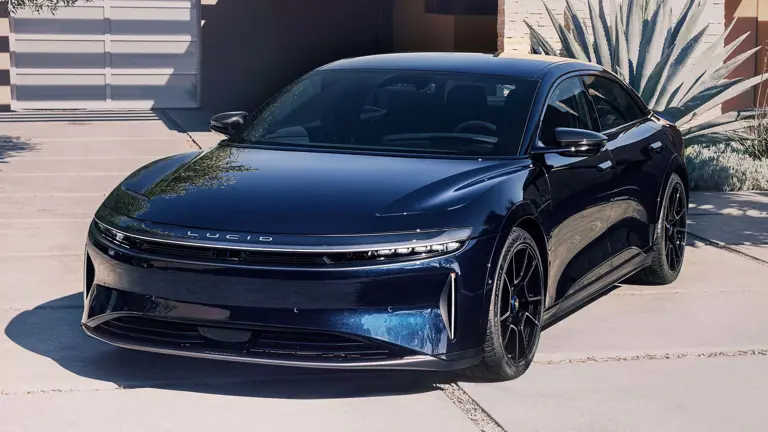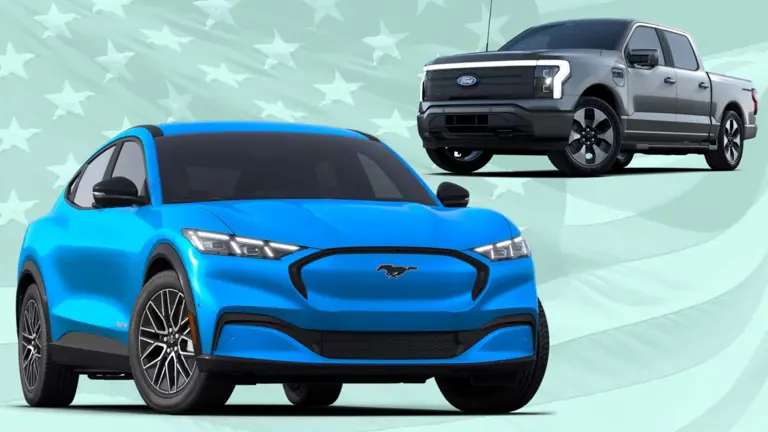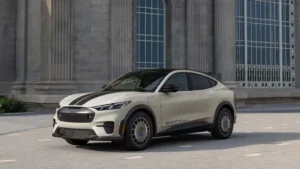Tech
Safaricom eyes partnership with Elon Musk’s Starlink amid stiff competition
Published
6 months agoon
By
Ekwutos Blog- Safaricom CEO Peter Ndegwa revealed that the telco held discussions with Starlink owned by American billionaire Elon Musk
- Ndegwa noted that satellite technology enhances internet connectivity in rural regions where fibre-based technology, which Safaricom and other local providers use, cannot
- He said Safaricom’s partnership with Starlink would benefit Kenyans in rural areas, and insisted that he was not worried about competition
Ekwutosblog journalist Japhet Ruto has over eight years of experience in financial, business, and technology reporting and offers profound insights into Kenyan and global economic trends.
Kenya’s largest telecommunications company, Safaricom, hopes to partner with Starlink to provide internet services countrywide amid stiff competition from satellite service.
Why Safaricom wants to partner with Starlink
In an interview with Bloomberg, Safaricom CEO Peter Ndegwa said the collaboration will allow the Elon Musk-owned company access local technology.
Ndegwa noted that satellite technology enhances internet connectivity in rural regions where fibre-based technology, which Safaricom and other local providers use, cannot.
The CEO’s revelation on holding talks with Starlink came after Safaricom wrote a letter to the Communications Authority of Kenya (CA) expressing concerns over its entrance to the market.
“From a satellite perspective, we have to partner with Starlink or other satellite providers in future to make sure that that technology plays right through. We have had some discussions, and we will continue to have those discussions to the extent that they complement what we are offering,” Ndegwa explained.
Ndegwa said Safaricom’s partnership with Starlink would benefit Kenyans in rural areas, and insisted that he was not worried about competition.
“What we’re telling the regulator is that satellite is used in places not covered today because it will benefit the country rather than competing in urban areas. We’re not worried about competition, we will deal with it,” he added.
Why Kituo Cha Sheria moved to court
The High Court is set to hear a petition seeking to allow satellite internet provider Starlink to operate in Kenya.
The parties in the case, Kituo Cha Sheria, Communications Authority of Kenya (CA), and Safaricom, agreed to drop preliminary issues, paving the way for the case to be heard speedily.
Justice Lawrence Mugambi ordered the parties to file responses and submissions ahead of the hearing on November 25.
What to know about Starlink and Safaricom
- Starlink has been reviewing its pricing to attract Kenyan consumers, offering broadband internet access with speeds up to 200 Mbps.
- Safaricom increased the internet speeds of its Wi-Fi packages to enhance its competitiveness against rising competition from Starlink.
- Starlink announced plans to allow mobile phone users a direct connection to the satellite internet via advanced Evolved Node B.
You may like


“Stop blaming me for the loss of my wife, it’s the economy” – Grieving husband cries out


If you kpai without making ur wife or children signatory to your acc0unt. You will loose over 20% of your m0ney to the G0vt and the Lawyer that will pr0cess it.


OP-ED: OBJ: DEMOCRACY OR DEMOCRAZY IN DANGER? By Tahir Ibrahim Tahir Talban Bauchi.


Contesting against Soludo will not be easy but defeating him is doable— Dr. George Moghalu(Labour party Governorship Aspirant)


PRESIDENT TINUBU VOWS SEVERE PUNISHMENT FOR PLATEAU ATTACKERS, COMMISERATES WITH FAMILIES OF VICTIMS


God has told me that RCCG council meetings will soon be held on the moon – Pastor E.A Adeboye
Tech
The 50-year-old code that reshaped the world: Bill Gates on the ‘revolution’ that started Microsoft
Published
1 day agoon
April 4, 2025By
Ekwutos Blog
Even as he grows older, Microsoft founder Bill Gates still fondly remembers the catalytic computer code he wrote 50 years ago that opened up a new frontier in technology.
Although the code that Gates printed out on a teletype machine may look crude compared to what’s powering today’s artificial intelligence (AI) platforms, it played a critical role in creating Microsoft in April 1975 – a golden anniversary that the Redmond, Washington, company will celebrate on Friday.
Gates, 69, set the stage for that jubilee with a blog post reminiscing on how he and his old high school friend – the late Paul Allen – scrambled to create the world’s first “software factory” after reading an article in the January 1975 issue of Popular Electronics magazine about the Altair 8800, a minicomputer that would be powered by a tiny chip made by the then-obscure technology company, Intel.
The article inspired Gates, who was just a freshman at Harvard University, and Allen to call Altair’s maker, Micro Instrumentation and Telemetry Systems, and promise the company’s CEO Ed Roberts they had developed software that would enable consumers to control the hardware.
There was just one hitch: Gates and Allen hadn’t yet come up with the code they promised Roberts.
‘The coolest code I’ve ever written’
Gates and Allen tackled the challenge by latching onto the BASIC computer language that had been developed in 1964 at Dartmouth College, but they still had to figure out a way to make the technology compatible with the forthcoming Altair computer, even though they didn’t even have a prototype of the machine.
After spending two months working on the program with little sleep, Gates finished the code that became the basis for the Altair’s first operating system.
“That code remains the coolest I’ve ever written,” Gates wrote in his blog post, which includes an option to download the original programme.
The code would go on to provide the foundation for a business that would make personal computers a household staple, with a suite of software that includes the Word, Excel, and PowerPoint programs, as well as the Windows operating system that still powers most PCs today.
“That was the revolution,” Gates said of the code in a video accompanying his post. “That was the thing that ushered in personal computing”.
Gates’ recollection of the code is part of a nostalgic kick that he has been on this year as he prepares to turn 70 in October.
The trip down memory lane included the February release of a memoir exploring his early years as an often-misunderstood child with few friends and a hailing of the 25th anniversary of the philanthropic foundation he created after stepping down as Microsoft’s CEO in 2000.
The tech giant initially stumbled after Gates’ departure but has been thriving under CEO Satya Nadella, and has amassed a market value of about $2.8 trillion (€2.5 trillion).
In his memoir, Gates also reflected on his tempestuous relationship with fellow PC pioneer, the late Apple co-founder Steve Jobs, whose company will be celebrating its golden anniversary next year.
“Fifty years is a long time,” said Gates, whose personal fortune is estimated at $108 billion (€98 billion). “It’s crazy that the dream came true”.
Tech
Lucid Had Another Record Quarter Thanks To Tesla Owners Who Jumped Ship
Published
3 days agoon
April 3, 2025By
Ekwutos Blog
The American luxury EV maker had its fifth consecutive record quarter.
- Lucid Motors delivered 3,109 cars in the first quarter.
- That’s a 28% increase year-over-year.
- A big reason for the uptick? Tesla owners.
The Lucid Air is a phenomenal machine, albeit a very expensive one. It’s the longest-range electric vehicle on sale today, with up to 512 miles on a full charge. It’s also extremely comfortable, but it costs between $70,000 and $250,000.
Despite the high price tag, the Air just helped Lucid achieve its fifth consecutive record quarter for deliveries. Thanks in no small part to Tesla owners ditching their EVs for other battery-powered cars, Lucid delivered 3,109 units in the first quarter of this year–an impressive increase of 28% over last year.
“Tesla owners always have been a source of customers for us,” said Lucid’s Interim CEO Marc Winterhoff during a Fox Business interview last week. “We saw a dramatic uptick in the last two months. Right now, 50% of all the orders that we have are from Tesla owners.”
More Lucid Stories
Compared to last year’s fourth quarter, Lucid delivered just 10 more vehicles, but a record is still a record. When it comes to manufacturing, the California-based startup built 2,213 cars at its facility in Casa Grande, Arizona, with an additional 600 units in transit to Saudi Arabia, where they will be assembled at the company’s AMP-2 facility. Compared to Q1 2024, Lucid built 28% more cars in the first quarter of this year.
Deliveries of the new Gravity SUV are yet to begin, with the first demo units scheduled to be finalized by the end of April. As a reminder, Lucid also built a handful of Gravity SUVs late last year, but that was a limited run intended for employees and company friends. In other words, although Lucid doesn’t split the delivery numbers for its two models, all the cars delivered in Q1 were likely Air sedans.
With the Gravity, Lucid is broadening its appeal to a wider audience that may not be so convinced about a luxury electric sedan. “More than 75% of our Gravity orders are from people who don’t own a Lucid,” said Winterhoff. That said, don’t expect Lucid’s first SUV to be affordable. The Gravity Grand Touring starts at $94,900–this gets you up to 450 miles of range on a full charge and seating for up to seven adults. A cheaper Touring trin, which will start from $79,900, will go on sale in late 2025.
Lucid Motors Deliveries
| Period | Units Delivered |
| Q4 2022 | 1,932 |
| Q1 2023 | 1,406 |
| Q2 2023 | 1,404 |
| Q3 2023 | 1,457 |
| Q4 2023 | 1,734 |
| Q1 2024 | 1,967 |
| Q2 2024 | 2,394 |
| Q3 2024 | 2,781 |
| Q4 2024 | 3,099 |
| Q1 2025 | 3,109 |
Tech
Ford’s EV, Hybrid Sales Surge In Q1 Ahead Of Tariff Chaos
Published
3 days agoon
April 3, 2025By
Ekwutos Blog
It was a record start to the year for electrified vehicles, mainly led by the Mustang Mach-E. But that could get pricier soon.
- Ford sold 73,623 electrified models in the U.S. in the first quarter, a 26% year-over-year growth.
- It was a record start to the year for hybrids, up 33% while Ford’s EVs were up 12%, mainly led by the Mustang Mach-E.
- Deliveries of the 2025 Mustang Mach-E, with improved range and more features, is imminent. But it could cost substantially more with President Trump’s 25% tariffs.
Ford sold more than half a million vehicles in the U.S. across powertrain types in the first quarter of this year.
While its overall sales sank marginally, electrified vehicles grew 26% year-over-year. Hybrids, plug-in hybrids and fully electric models now together account for 15% of Ford’s overall sales, a 3% jump over last year.
The Dearborn automaker sold 501,291 units in the first quarter, a 1.3% year-over-year drop. Gas-powered vehicles accounted for 427,668 units (85%) of the total sales, whereas fully electric models made up 22,550 units (4.4%) and hybrids totaled 51,073 units (10.1%).

2025 Mustang Mach-E Rally_04
The Mustang Mach-E outsold the gas-powered Mustang again and every single Lincoln model on sale. Ford sold 11,607 Mach-Es, a 21% increase year-over-year. By comparison, buyers drove home only 9,377 combustion-engined Mustangs, a sharp 31.6% drop.
Sales of the E-Transit electric van increased nearly 30% to 3,756 units. However, the F-150 Lightningdid not perform as well, even though the overall F-Series trucks grew by 24.5%. Only 7,187 Lightnings found homes so far this year, a 7.1% drop.
By comparison, sales of the Chevy Silverado EVgrew 125% to 2,383 units. General Motors also just launched cheaper versions of the 2026 Sierra EV, which has the potential to put the automaker at the forefront of the electric truck race in the coming months.
However, Ford’s momentum with its electrified models risks stalling as President Trump’s 25% tariffs on imported cars and auto parts went into effect on Wednesday. While most Ford cars are assembled in the U.S., all of them get over half of their parts content from overseas—mostly Mexico—according to the National Highway Traffic Safety Administration.

2025 Ford F-150 Lightning with the
A whopping 78% of the Mustang Mach-E’s parts are sourced from Mexico and the crossover is also assembled there. Even the hugely popular Bronco Sport and the Maverick are assembled across America’s southern border.
Unless the president provides American automakers with some tariff relief or trade concessions, their momentum risks getting wiped out, at least in the short term.
Have a tip? Contact the author: suvrat.kothari@insideevs.com
Related Stories

“Stop blaming me for the loss of my wife, it’s the economy” – Grieving husband cries out

If you kpai without making ur wife or children signatory to your acc0unt. You will loose over 20% of your m0ney to the G0vt and the Lawyer that will pr0cess it.

OP-ED: OBJ: DEMOCRACY OR DEMOCRAZY IN DANGER? By Tahir Ibrahim Tahir Talban Bauchi.
Trending

 Trending6 months ago
Trending6 months agoNYA demands release of ‘abducted’ Imo chairman, preaches good governance
- Business6 months ago
US court acquits Air Peace boss, slams Mayfield $4000 fine

 Politics6 months ago
Politics6 months agoMexico’s new president causes concern just weeks before the US elections
- Entertainment6 months ago
Bobrisky transferred from Immigration to FCID, spends night behind bars
- Entertainment5 months ago
Bobrisky falls ill in police custody, rushed to hospital

 Politics5 months ago
Politics5 months agoRussia bans imports of agro-products from Kazakhstan after refusal to join BRICS

 Politics5 months ago
Politics5 months agoPutin invites 20 world leaders
- Politics1 year ago
Nigerian Senate passes Bill seeking the establishment of the South East Development Commission.

